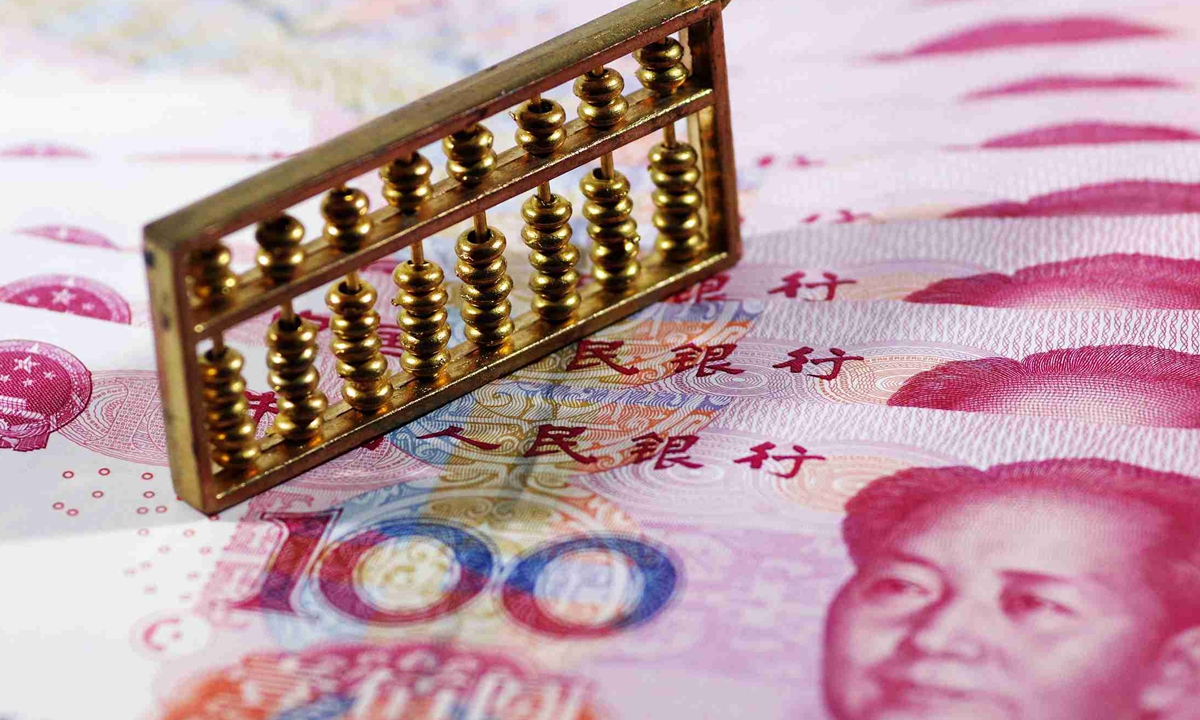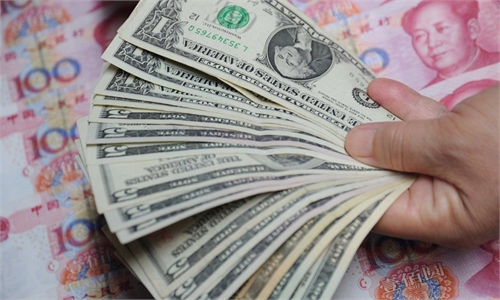
Chinese yuan Photo:VCG
China will further enrich and make good use of its policy toolbox to guard against the overadjustment in the yuan's exchange rate and abnormal cross-border capital flows, amid a complex and rapidly evolving external environment, the head of China's foreign exchange regulator said on Wednesday.
Speaking at the Lujiazui Forum, a professional forum in the finance industry that kicked off in Shanghai on Wednesday, Zhu Hexin, a deputy governor of the People's Bank of China and head of the State Administration of Foreign Exchange (SAFE), stressed that there is a solid foundation for China's foreign exchange market to maintain stable operations and the yuan's exchange rate to remain basically stable at a reasonable and balanced level.
Since the beginning of this year, the US dollar's exchange rate and US bond yields have generally rebounded, and volatility in the global foreign exchange market has increased, with non-US currencies generally coming under pressure, Zhu said.
"Our country's foreign exchange market also faces increasing challenges. However, it again withstoods the test and shows relatively strong resilience and stability," he said, pointing to the generally stable trends in the yuan's exchange rate against a basket of major currencies, as well as the international balance of payments and the current-account surplus.
Notably, foreign investors' enthusiasm for yuan-denominated assets continues to improve, officials said. In May, foreign investors bought a net $32 billion worth of domestic bonds, up 86 percent month-on-month and at a relatively high historical level, according to the SAFE.
Thanks to a solid rebound in China's foreign trade, the net inflow of funds under the merchandise trade category increased 76 percent month-on-month and 23 percent year-on-year in May, Wang Chunying, a spokesperson for the SAFE, said on Monday.
The figures offer a resounding rebuttal to claims of "capital flight" from China hyped by some Western media outlets, analysts said, noting that recent developments showed increased global confidence in the recovery of the Chinese economy.
In May, the IMF raised its forecast for China's GDP growth to 5 percent in 2024, an upward revision of 0.4 percentage points, while the World Bank earlier this month raised its forecast for China's 2024 growth to 4.8 percent, from its previous forecast of 4.5 percent.
Moreover, many indicators, including industrial output and retail sales, showed that the Chinese economy continued to rebound in May.
The solid economic fundamentals, the resilience of China's market and the foreign exchange market's rich experience in coping with risks mean that China's foreign exchange market will maintain stable operations, and the yuan's exchange rate will remain basically stable at a reasonable and balanced level, Zhu said on Wednesday.
"We will continue to pay close attention to changes in the external environment, further enrich and make good use of the policy toolbox, and prevent the risks of overadjustments of the yuan's exchange rate or abnormal cross-border capital flows," the SAFE head said.
Global Times



